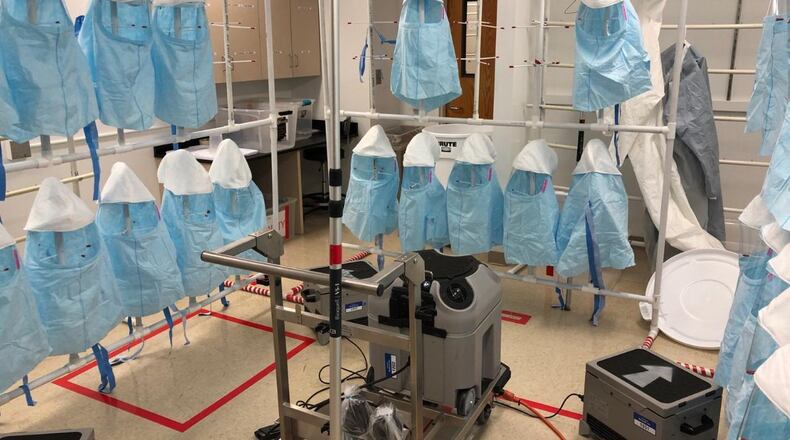John Mormando was an avid bowler. One night, he went bowling with friends, shook their hands, and went home. A week later, he was hospitalized with COVID-19. In a March 20 interview on Fox News, he offered the following advice: “People do not need to go bowling. There is no way they should risk their lives to go bowling, to go to the theater, to go anywhere… .” If you speak to others affected by COVID-19, stories like this are common.
As Georgians, we share and understand the growing psychological and financial stress on families, students, children, businesses and other organizations caused by coronavirus-related closures. We share the goal of reopening the state, but as frontline health care workers, we strongly believe that doing it now will be unsuccessful and will lead to more deaths.
One of the key elements for local and national governments to consider, in determining when to get “back to business” is to have sufficient testing available — either serological tests (blood tests), or virologic polymerase chain reaction testing (the nasal swab). This has been recommended by our federal government, leading medical organizations, and leading medical experts across our country. In addition to robust testing for the public and for healthcare workers, we should have a 14-day decrease in new cases.
We have achieved neither.
Public health officials still don’t know the true prevalence of COVID-19 within our state. Only with widespread testing can we achieve that. Commercial labs like the CVS testing site at Georgia Tech are limited in number and difficult to access. More drive-through sites have been announced but even more are needed; the training and availability of staff to work at these sites remains a challenge. Additionally, healthcare systems need the staff to routinely follow up with patients sent home, and whose nasal swab test results return positively.
Healthcare workers like us are bracing to feel the brunt of business openings. One study in China demonstrated that one infected person with COVID-19 infected 8 additional restaurant patrons, even when kept at a moderate distance. Bowling alleys and salons have high potential for multiple human contacts, and shared use of objects that can carry viral particles. What does “proper disinfection” look like in the finger grooves of a bowling ball?
In 5-10 days after reopening these businesses, a surge could be expected to come to hospitals and doctors’ offices, exposing healthcare workers who are currently forced to reuse masks and ration scrubs. The psychological burden of constantly worrying about infecting loved ones is great for healthcare workers too.
Decisions to reopen community businesses should be made in collaboration with the large and small health systems serving counties across Georgia, with community health workers serving those communities, and with government at state, county, and municipality levels. A full understanding of their ability to implement robust testing, as well as the necessary follow-up and surveillance measures, is necessary to determine when and how counties within the state should reopen.
We understand our leaders bear a great burden as they try to make the correct decisions for their constituents. However, reopening now — particularly in settings like bowling alleys, barber shops, etc. that carry high potential for human-to-human contact — without adequate preparation is dangerous. Let’s not bowl a strike on the people of Georgia, further putting them at risk for severe sickness or, even worse, death, but instead let’s focus our efforts on doing it correctly and collaboratively.
Tracey L. Henry, M.D., is a general internist in the Division of General Medicine and Geriatrics at Emory University based at Grady Memorial Hospital and serves as assistant health director in the Grady Primary Care Center. Marshall Fleurant, M.D., is a general internist in the Department of Medicine and Geriatrics at Emory University School of Medicine. He practices at Grady Hospital and is co-chair of the Health Equity Committee for the Society of General Internal Medicine. Erica Heiman, M.D., is an assistant professor in the Department of Medicine at Emory University, based at Grady Hospital. Stacie Schmidt, M.D., is a general internist in the Division of General Medicine and Geriatrics at Emory University and Grady Hospital. Her career focuses on acknowledging social determinants of health as causes of chronic disease and enhancing patient self-efficacy in managing these illnesses. Francois Rollin, M.D., is an assistant professor of medicine for Emory University at Grady Hospital, working in medical education and patient care.
Keep Reading
The Latest
Featured

